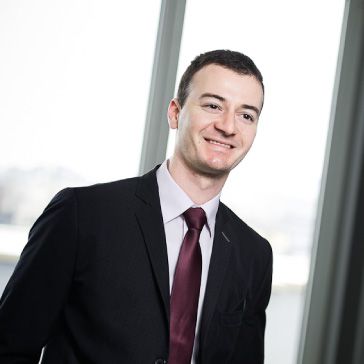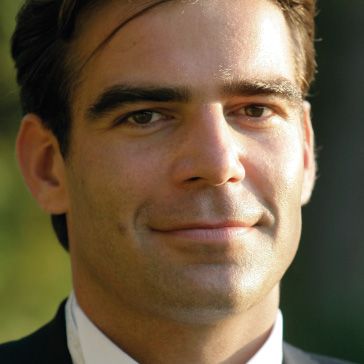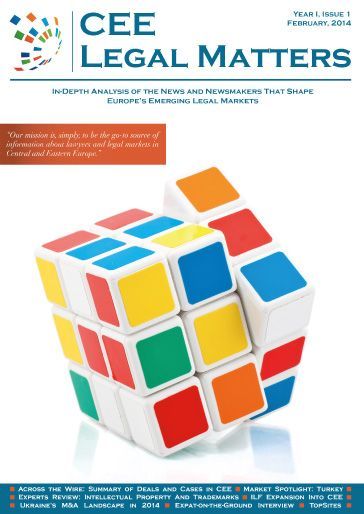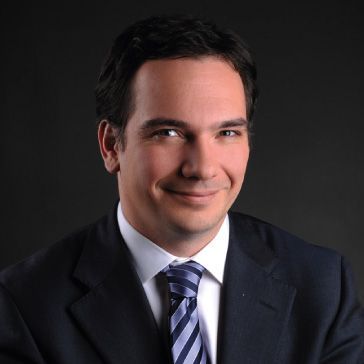Emre Derman is the Managing Director and Senior Country Officer for Turkey at JP Morgan. Derman was a freelance consultant for many years at White & Case in Istanbul, New York, and London, and was the Executive Partner of the firm’s Istanbul office from 1998 to 2008. In 1994 he also spent a year at the European Bank of Reconstruction and Development in London.
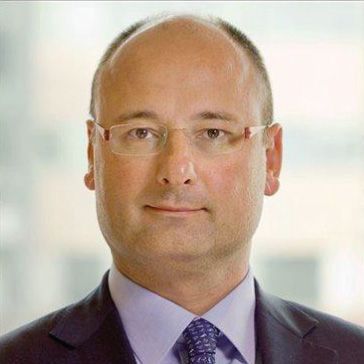
“I think what has suffered is the personal attention that top clients expect from senior members of the firm”
CEELM: Emre, thank you so much for talking with me today. Let’s get right into it. You’ve referred to the “fragmenting” of the law firm market in Turkey. Can you elaborate?
People who were struggling to make partner at an international firm, and when I say struggling I don’t mean it in a negative connotation, what I mean is, because of market pressures, because of what the world economy has been doing, people just didn’t have enough revenues to make it to equity partnership in an international firm had said, “well, life can’t be this difficult, let me go and establish my own firm and at least I’ll have my nice office and my name on the door.” And a number of people have done that, so we’ve had an outflow of significant, qualified, good, trained people, who’ve gone out and established their own offices. Now once they’ve done that, and in order to increase productivity, I think what they’ve done is they’ve essentially over-delegated.
A number of lawyers in Turkey feel that they’ve arrived and therefore they don’t feel the need to personally pay too much attention to their clients. Instead they now have to pay the bills, get the administration right, recruiting, hiring, this, that, etc. So I think what has suffered is the personal attention that top clients expect from senior members of the firm. So in the past for example if you were working with X, when he or she was working with Y international firm, X used to give you a lot of time. You were his number 1 client, and X would be working for you, actually drafting the document, actually attending the negotiation, etc. Doing all of that personally. But when X goes and establishes X law firm, you know, he wants to bring in A, B, C, as his associates, as his younger troops, etc., and I think they hurry up in doing that, there’s an unnecessary acceleration, and they delegate down a lot more than they should in my humble opinion.
CEELM: You mean associates are doing more of the work than they should be?
I think that is the case. I think people who become partners – quote unquote – in the Turkish law firms have this sense of entitlement where they themselves are not going to get their hands dirty all that much any more, and that’s a mistake. The profession is one where you, personally, regardless of how senior you are, as a partner you personally have to be very involved if you want to keep the client’s loyalty.
CEELM: Do you think this is a natural step in the process, or is the Turkish market going down a wrong path?
I don’t think it’s going down a wrong path. I think it’s a natural process. I think the market is too fragmented, and that’s what leads this change. If you had a bunch of them coming together, then you’d have one partner dealing with management, administration, etc., and all of the others would have to do something, so they’d start refocusing on their clients, actually doing the legal work at which they’re very good. As opposed to trying to run the firms – at which they’re not necessarily all that good. So, you know, I think the fact that there are just too many firms out there, in a fragmented approach, is the reason that drives this change.
CEELM: And so the next step then would be for the clients to become sophisticated enough that they stop giving their business to the firms that aren’t really giving them the personal attention that they need.
I think the clients are sophisticated enough. The issue is, Turkey is a case of one-time deals, it’s not a case where clients produce deal after deal after deal. So there are a lot of people coming into Turkey and going out. And except for a very few names, there aren’t that many clients that continuously do large deals in Turkey. That translates into many one-night-stand kind of relationships as opposed to long-term commitments. And therefore to the extent you’re unhappy with a particular lawyer you say, “well next time I’m not going to use this person,” but then, you know, “next time” may come 3 years down the road for you, because there aren’t that many opportunities. So the next natural step in the Turkish market would be one of consolidation, but for that to happen you need a broader base, you need a deeper market, you need more revenues being generated. You need the ability to actually charge higher hourly fees, and hence support a larger infrastructure, as opposed to the 20-lawyer, 30-lawyer smaller firms.
CEELM: Yes, I was just going to get to that. A number of the people I’ve talked to have talked about this sort-of insane downward pressure on fees that they’ve never seen before. Is that sort of what you’re talking about as well?
Yes. The fact is that fees have come down very significantly in Turkey in the last decade. I don’t know how it’s going to go back up. It does need a significant change in the market. But I would agree that there is increased fee competition today. And unfortunately with so many well-trained, good English-speaking, good lawyers out there, and not necessarily all that many deals to go around – particularly deals of a significant size – fee competition is what drives the marketplace in Turkey.
CEELM: Is it divided, you think, so that the more established, Fortune-500 companies that know the value of good legal work for more sophisticated, complicated deals, will seek out the firms that will probably charge more, whether it’s White & Case, or Baker & McKenzie, or whoever, whereas the smaller companies needing one-off deals are going to go to the splintering firms? Is that the dynamic, or is everyone pushing down for the same fees right now?
I think it’s both. First of all everyone is pushing for lower fees. And frankly, you know, people like us – the clients – are to blame for it as well, because once you get used to fees in the range of a couple hundred thousand dollars for a particular type of transaction, let’s say an IPO, then it’s very difficult to – next time you do it – it’s very difficult to accept a quote for 800,000 or 900,000 dollars. But I think the Turkish market itself – I think it’s simply a result of the fact that there just are not enough deals in Turkey. You need more deals to support this kind of a broad base of lawyers. And I don’t mean smaller deals. I mean larger deals. In Turkey last year I think there were like only two public offerings of a significant size that got completed. Maybe three. Now, that’s not an environment that’s conducive to increasing fees. You need like 10, 15 of those to be able to say, “ok, fine, we’re only going to be able to do this if you accept our fee proposal of 1 million dollars.”
CEELM: Do you think Turkey is over-lawyered? Are there too many firms, too many lawyers, fighting for the same clients?
I think right now Turkey is over-lawyered. I think Turkey became a gem of emerging markets, and everyone looked into Turkey, and everyone decided that they’re going to establish shop here, and I think we now have a number of partners who are trying to prove themselves to the international organization by getting more business, and frankly they’re getting it at the cost of profitability.
CEELM: You mentioned briefly the quality of the legal work. I understand what you’re saying about not enough partners rolling up their sleeves and getting to work. But in a more general sense do you think the lawyers of Turkey are better than they were 15 years ago? Or not noticeably, or worse?
No, no, of course they’re much better than they were 15 years ago. There is no doubt. They are clearly much better. In terms of their capacity, their ability to do good work, I think they’re clearly better – on average, right? But I’m exposed to the very crème de la crème of the crop, right? And I think attention to detail has waned, I think the personal attention to clients has waned, at the very top. But on average there is no doubt that the legal profession has grown by leaps and bounds. Not just in terms of quantity but in terms of quality as well.
CEELM: What do you attribute that to?
Well I think clearly, the opening up of the economy, number 1, then 2, the good performance of the economy in the last 10 years, the acceptance of the fact that there is something called “international law,” and “anglo-saxon law” is not something that you need to be afraid of – you can master it. The fact that a lot more high-school students now graduate with very good English as opposed to 20 years ago. So I think you can boil it down to essentially to being more in tune with the global markets. It has affected law as much as anything else.
CEELM: Do you think the law schools, by the way – or at least the very best law schools – are any better at preparing the students, or is that not really a factor?
It is definitely a factor. Looking back to my time you had a couple of state schools that offered law as a discipline, and the better schools were concentrating on engineering, medicine, etc., so law was not a fashionable subject. So it’s a virtuous cycle. As law becomes more fashionable, the educational institutions – privately-owned, good educational institutions – started offering law faculties, and that of course led to law becoming more fashionable and a better-paying profession, which then increases the number of applicants, and it becomes economically feasible for better universities to offer law school as a discipline, so right now I think there are very good law schools in Turkey, as compared to when I graduated.
CEELM: I guess part of what I was getting at is that I know in some of the countries of Eastern Europe, law is still taught as an academic or intellectual discipline, not very much as a commercial concept, and I’m wondering if the best law schools are increasingly preparing their students to be commercial lawyers.
That is the case, and that is the correct analysis. There has definitely been a shift from, well, you go to law school and you become a law professor, to you go to law school and you could be really influential in business.
CEELM: What’s your take on the international firms coming in? Is that an irrelevant consideration for you, or do you think there’s too many, or not enough? Do you have any thoughts on that?
No, it’s obviously a very relevant consideration. I think the international firms ought to be here. But they ought to be here with the right attitude. What I mean by that is that sometimes … well, in a number of the cases I look at, there is the international firm, and then there is the local lead person, and the local lead person feels like it is his or her shop. That it is not necessarily the international firm. And that is quite evident when you talk to the junior associates, etc. Inevitably I compare it to what we had at White & Case. We never had the “Derman Law Firm” in anything more than name. For us, it was always White & Case, it was always the international firm. We made sure that the junior people who came on board felt that they were joining White & Case, and nothing else.
CEELM: Is that ego, you think, or is that a function of the firms not perhaps choosing the best Turkish counterparts?
No no, I think they’ve chosen good counterparts, but perhaps they’ve chosen people who already have been established and therefore are used to doing their own thing. You know, you look at me and you look at my colleagues, we started as interns at White & Case, and we grew up through the system, so it was in our blood. It wasn’t like “well, we have our law firm, and we’ll do an agreement with whoever writes us the largest cheque.” So I think that’s a very different perspective.
CEELM: Okay, my last real question is that, if you were recommending to other in-house counsel abroad, London, or New York, or wherever, as they’re starting to look for Turkish lawyers to help them,and obviously it depends on what the particular project is, but, what sort of criteria … do you think Legal500 is good, or how would you try to make this particular evaluation?
I have very little trust in publications like Chambers and Legal500, etc., beyond the initial stage of identifying the top candidates. I think there’s a lot of … advertisements, buying, etc., that goes on, that sort of puts you into places in those places. I think taking a look at the international firms is a safe bet for most everyone looking into Turkey. Particularly if you’re looking into cookie-cutter transactions like M&A, Equity Capital Markets, Debt Capital Markets, Joint Ventures, etc. You look at the top firms, and you interview 2-3 individuals there, you’re going to find something that adequately services your needs. It’s only when you’re really looking at a very interesting issue of Capital Markets law or Employment Law, or you name it, when you’re really looking at a niche product, that you need more word-of-mouth reference, more discussions with people who’ve been in Turkey, to get to the right person.
